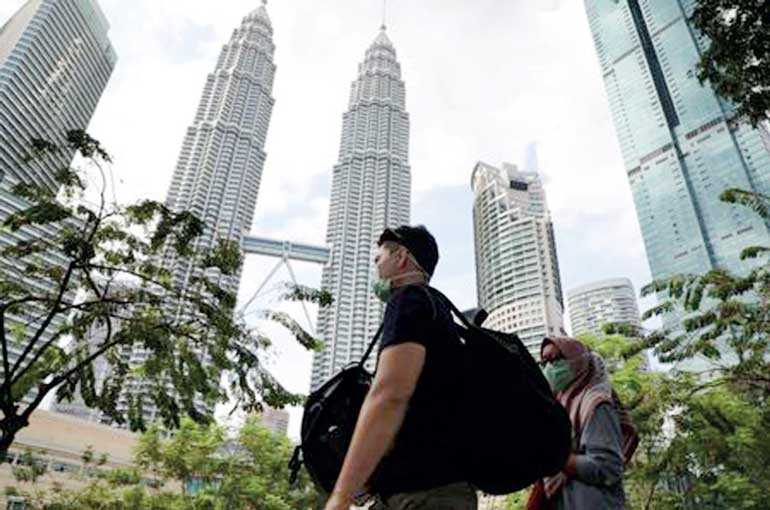Tuesday Mar 03, 2026
Tuesday Mar 03, 2026
Thursday, 20 February 2020 00:00 - - {{hitsCtrl.values.hits}}

Tourists wearing masks pass by Petronas Twin Towers in Kuala Lumpur, Malaysia, 31 January – Reuters File Photo
MANILA (Reuters): Southeast Asia’s holiday hotspots, hit by billions in lost business from Chinese tourists, are turning to markets closer to home to soften the blow from travel restrictions caused by the coronavirus epidemic.
To make up for foregone revenues, firms in the region are dangling discounted airfares, hotel accommodation and tour add-ons in a bid to boost domestic travellers.
Home to rich culture, white sand beaches, diverse marine life, lively nightlife and affordable tours, Southeast Asia is the favourite for Chinese tourists, the region’s top foreign visitors. But travel restrictions on China, the origin of the new coronavirus, since late January have led to losses in the region’s hospitality sector.
In the Philippines, the government and tourism players last week launched a travel campaign led by President Rodrigo Duterte.
“Come with me and be my travel companion. I’ll be traveling around the Philippines,” Duterte said in video address, offering assurances that the virus posed no risks to local tourists in their own country.
Member firms of the Tourism Congress of the Philippines are offering discounts of up to 50% on hotels, free upgrades and complimentary items like breakfasts.
Other firms are offering individual customers corporate or government rates for tours and hotel accommodation, which are 15% to 30% cheaper, Arwin Paul Lingat, president of a tourism officers group, told Reuters.
Manila’s Golden Phoenix Hotel has slashed its rates by two-thirds, its marketing director Christine Ann Ibarreta said.
Local sweeteners
China’s health authorities are reporting thousands of new cases daily of the coronavirus infection, which has killed 1,868 people, mostly in China. The flu-like virus’ spread has also prompted countries to shut doors to Chinese travellers, who are a major source of growth for many Southeast Asian economies.
Southeast Asia welcomed more than 29 million mainland travellers in 2018, up 15% from a year earlier, data from the ASEAN Statistical Yearbook 2019 showed. That was nearly double the entire European market and almost five times the number of North American tourists.
Southeast Asian airlines are making fares attractive for cost-sensitive locals. Indonesia’s biggest budget carrier, Lion Air, is reducing fares by up to 60% on select flights.
Philippines’ largest carrier, Cebu Pacific, which has refunded 1.5 billion pesos ($ 29 million) to passengers, is offering seats on flights for as little as $ 2 before taxes while Philippine Airlines launched promotional discounts of 20% to 40%.
Thailand, Southeast Asia’s biggest market for Chinese tourists, is now offering special packages for local elderly, which allows their expenses to be used for their children’s tax deductions.
The Thai government is also providing tax breaks and soft loans to help slow job losses.